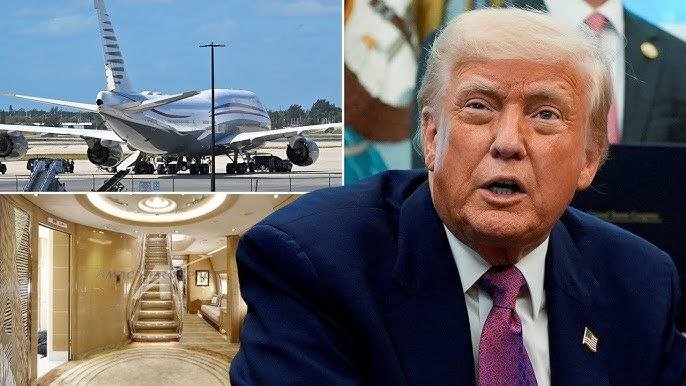Tehran – In May 2025, US President Donald Trump visited Saudi Arabia, Qatar and the United Arab Emirates (UAE) and embarked on a tour of the famous Persian Gulf. The White House promoted the trip as a diplomatic success characterized by billions of dollars of defense and economic agreements, but critics raised vigilance about ethical violations.
The charges emerged as Trump used his presidential role to advance personal and family business interests, causing serious legal and political backlash.
Strategic incentives and local goals
Trump’s visit was driven by a desire to secure massive investment and arms trade while strengthening US economic ties with the Persian Gulf Arab countries. He argued that the estimated $4 trillion potential contract reflects his administration’s approach to diplomacy.
Another important objective was to reconcile US policy in the region by easing sanctions against Syria’s transitional government and promoting cooperation in defense and technology, particularly in sectors such as semiconductors and artificial intelligence (AI).
Beyond economics, Trump aimed to encourage Persian Gulf countries to play a more active role in stabilizing the region. His agenda addressed ongoing conflicts, particularly ongoing conflicts that argued concerns over the Gaza War and Iran’s nuclear program. The visit highlighted Trump’s belief in using economic incentives to advance foreign policy goals.
Major contracts and diplomatic engagements
The tour has brought some groundbreaking deals:
In Saudi Arabia, Trump has announced a $142 billion arms agreement and a wide range of energy and technology partnerships. Riyadh’s investment in the US, which is already estimated at $600 billion, is expected to spur large investments in Saudi AI projects by American companies such as NVIDIA and AMD.
Qatar has secured more than $240 billion in deals, including the landmark $96 billion deal with Boeing. The visit marked a milestone as the first official trip to Qatar by the US President, opening a new chapter in bilateral relations.
In the UAE, a $1.4 trillion AI-centric data center project and $1.6 billion in arms sales showcases deepening cooperation in both the defense and emerging technology sectors.
With an unexpected twist, Trump met with Syrian President Ahmed Alshara and announced plans to lift the country’s long-standing sanctions. The controversial move at home has been framed as a step towards Syria’s return to global community.
Trump also encouraged Arab leaders of the Persian Gulf to join the Abrahamian agreement and acknowledge Israel, but the response was largely uncommitted.
Trump’s trip to the Persian Gulf serves as a warning about the dangers of mixing personal goals with national interests on the world stage.
Corruption allegations and ethical questions
Despite the financial outcomes, the trip was ruined by serious charges of corruption and ethical misconduct. Critics said Trump’s official work is very mixed with the private business interests of his family.
It was said that Trump brand assets in Dubai, Jeddah and Doha would come from the diplomatic push and flow of money in the Persian Gulf.
Trump’s son-in-law, Jared Kushner, was accused of using the trip to invest in his business projects and raising issues of conflicts of interest.
One particularly controversial event was Trump’s acceptance of a Boeing 747 jet from Qatar’s ruler. The act, which is considered a personal gift, sparked bipartisan backlash in Washington. Lawmakers raised concerns about the risks of national security and the troublesome facial expressions of fraud.
In response to these issues, Congress’s cross-party groups have sought to stop selling weapons to the UAE and Qatar. They were worried that US arms could become a group related to human rights abuses.
The House Select Strategy Committee also warned that some transactions in semiconductors and AI could create greater risks, particularly in China’s impact.
Trump’s approach to Israel also faced criticism. He was unable to stop the fighting in Gaza or advance peace talks.
During their local stay and after departure, Israel intensified the genocide in Gaza. His idea of turning Gaza into a US-run “free zone” was also widely viewed as troubling and unrealistic.
This journey led to massive deals for the purchase of arms and investment. They also demonstrated the risks when public roles and private interests overlap.
The issues, particularly those linked to corruption, conflicts of interest and personal interests from Trump’s inner circle, revealed weaknesses in US governance. Furthermore, they have raised people questioning the true purpose and reliability of American policies in the region.
Ultimately, the trip led to important economic and diplomatic goals, but compromised ethical norms and possibly hurt Washington’s long-term impact. This episode serves as a warning about the dangers of mixing personal goals with national interests on the world stage.

